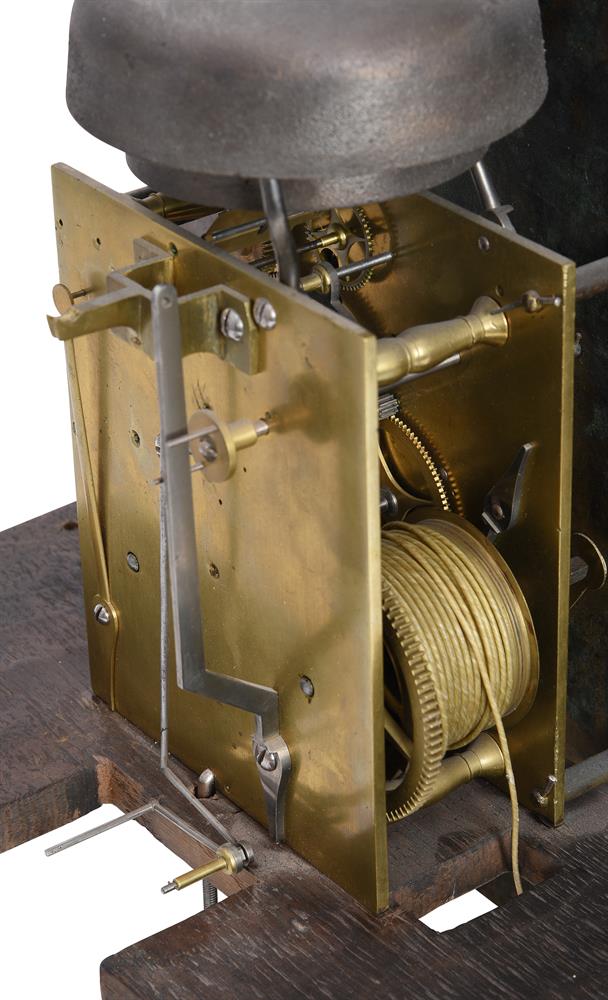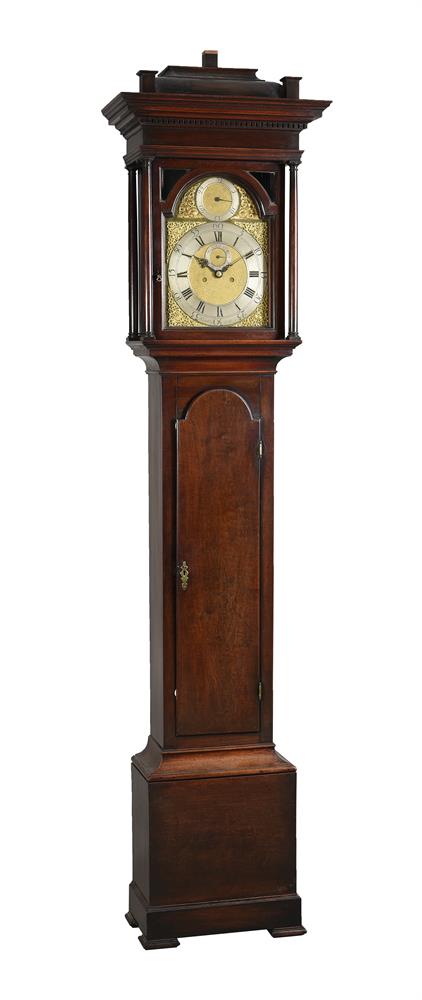A particularly fine Great War D.S.C. group awarded to Captain H. McClelland, Royal Air Force, late Royal Naval Air Service, for the epic Handley Page bomber attack on the “Goeben” in July 1917 Distinguished Service Cross, G.V.R.; British War and Victory Medals (Capt., R.A.F.), the first in case of issue and the others in card forwarding boxes, good very fine and better (3) £3000-4000 Footnote D.S.C. London Gazette 29 August 1917: ‘In recognition of their services on the night of 9 July 1917, when a successful attack was carried out against the Turkish-German fleet lying off Constantinople. When the Goeben, surrounded by warships (including submarines), had been located, the attack was made from a height of 800 feet. Direct hits were obtained on the Goeben and on other enemy ships near her. Big explosions took place on board them, followed by a heavy conflagration. The War Office in Constantinople was also attacked and a direct hit obtained.’ McClelland was commissioned into the Royal Naval Air Service as a Flight Sub. Lieutenant in June 1915, and gained advancement to Flight Lieutenant in October 1916, after serving at Chingford aerodrome in BE2c aircraft. It was in the following year, however, on gaining experience in Handley Page bombers, that he participated in the epic raid against the Goeben. The extraordinary flight of Handley Page 3124, from England to Mudros (within striking distance of Constantinople), a journey of some 2,000 miles, took from 23 May to 8 June 1917. The crew, captained by Squadron-Commander Kenneth Savory, comprised Lieutenant McClelland as “Bomb-dropper” and 2nd Pilot, and Lieutenant Rawlings as Observer, with the able gunnery and mechanical support of Chief Petty Officer Adams and Leading Mechanic Cromack. The journey was completed in several legs, from Hendon to Paris, thence to Lyons, Frejus, Genoa, Rome (where the crew were horrified by the publicity their flight had attracted, in fear of the element of surprise being lost), Naples, Otranto and Mudros. It would not be until nearly a month after their arrival that the attack on the Goeben actually got underway. Beset by poor weather or mechanical failure, the crew had to experience three failed attempts. Even so, on two of these occasions they were able to attack alternative targets, useful practice for the real thing which took place on 9 July. Squadron-Commander Savory brought HP 3124 over the target area shortly before midnight, setting course for Stenia Bay where the Goeben lay at anchor with other enemy ships and submarines. The element of surprise seemed total, three runs around the bay going unchallenged while captain and crew assured themselves of the target. Then Savory swept in at 900 feet and at the appointed moment McClelland released a salvo of four 112lb bombs, all of which fell just amidships of the Goeben, damaging surrounding enemy shipping. The second salvo of four 112lb bombs, released a few minutes later, appeared to hit her in the centre of her forward deck. Now the fireworks had started, an appreciable amount of A.A. fire started to light up the night sky. Unperturbed, the gallant crew of HP 3124 set off West to attack the General, a ship which was thought to house a German H.Q. It was 12.20 a.m. when McClelland dropped a pair of 112lb bombs bang on to her stern from 1,300 feet. Final port of call was the Turkish War Office where from 900 feet McLelland appeared to score two direct hits in the centre of the building. Well content with the night's work, Savory turned the giant Handley Page for home, having, by twentieth century standards, accomplished a feat no less outstanding than that achieved by the Vulcan bomber raid on Port Stanley airfield during the Falklands War. The success of the raid will never be fully known, there being so many conflicting accounts. It would seem, however, that damage to the Goeben was minimal, although one of our agents claimed 29 had been killed. The enemy did admit the loss of one of the submar
A particularly fine Great War D.S.C. group awarded to Captain H. McClelland, Royal Air Force, late Royal Naval Air Service, for the epic Handley Page bomber attack on the “Goeben” in July 1917 Distinguished Service Cross, G.V.R.; British War and Victory Medals (Capt., R.A.F.), the first in case of issue and the others in card forwarding boxes, good very fine and better (3) £3000-4000 Footnote D.S.C. London Gazette 29 August 1917: ‘In recognition of their services on the night of 9 July 1917, when a successful attack was carried out against the Turkish-German fleet lying off Constantinople. When the Goeben, surrounded by warships (including submarines), had been located, the attack was made from a height of 800 feet. Direct hits were obtained on the Goeben and on other enemy ships near her. Big explosions took place on board them, followed by a heavy conflagration. The War Office in Constantinople was also attacked and a direct hit obtained.’ McClelland was commissioned into the Royal Naval Air Service as a Flight Sub. Lieutenant in June 1915, and gained advancement to Flight Lieutenant in October 1916, after serving at Chingford aerodrome in BE2c aircraft. It was in the following year, however, on gaining experience in Handley Page bombers, that he participated in the epic raid against the Goeben. The extraordinary flight of Handley Page 3124, from England to Mudros (within striking distance of Constantinople), a journey of some 2,000 miles, took from 23 May to 8 June 1917. The crew, captained by Squadron-Commander Kenneth Savory, comprised Lieutenant McClelland as “Bomb-dropper” and 2nd Pilot, and Lieutenant Rawlings as Observer, with the able gunnery and mechanical support of Chief Petty Officer Adams and Leading Mechanic Cromack. The journey was completed in several legs, from Hendon to Paris, thence to Lyons, Frejus, Genoa, Rome (where the crew were horrified by the publicity their flight had attracted, in fear of the element of surprise being lost), Naples, Otranto and Mudros. It would not be until nearly a month after their arrival that the attack on the Goeben actually got underway. Beset by poor weather or mechanical failure, the crew had to experience three failed attempts. Even so, on two of these occasions they were able to attack alternative targets, useful practice for the real thing which took place on 9 July. Squadron-Commander Savory brought HP 3124 over the target area shortly before midnight, setting course for Stenia Bay where the Goeben lay at anchor with other enemy ships and submarines. The element of surprise seemed total, three runs around the bay going unchallenged while captain and crew assured themselves of the target. Then Savory swept in at 900 feet and at the appointed moment McClelland released a salvo of four 112lb bombs, all of which fell just amidships of the Goeben, damaging surrounding enemy shipping. The second salvo of four 112lb bombs, released a few minutes later, appeared to hit her in the centre of her forward deck. Now the fireworks had started, an appreciable amount of A.A. fire started to light up the night sky. Unperturbed, the gallant crew of HP 3124 set off West to attack the General, a ship which was thought to house a German H.Q. It was 12.20 a.m. when McClelland dropped a pair of 112lb bombs bang on to her stern from 1,300 feet. Final port of call was the Turkish War Office where from 900 feet McLelland appeared to score two direct hits in the centre of the building. Well content with the night's work, Savory turned the giant Handley Page for home, having, by twentieth century standards, accomplished a feat no less outstanding than that achieved by the Vulcan bomber raid on Port Stanley airfield during the Falklands War. The success of the raid will never be fully known, there being so many conflicting accounts. It would seem, however, that damage to the Goeben was minimal, although one of our agents claimed 29 had been killed. The enemy did admit the loss of one of the submar




/107589/Internet%20Image%201.jpg)

/76433/Internet%20Image%201.jpg)

/52852/Internet%20Image%201.jpg)






Try LotSearch and its premium features for 7 days - without any costs!
Be notified automatically about new items in upcoming auctions.
Create an alert